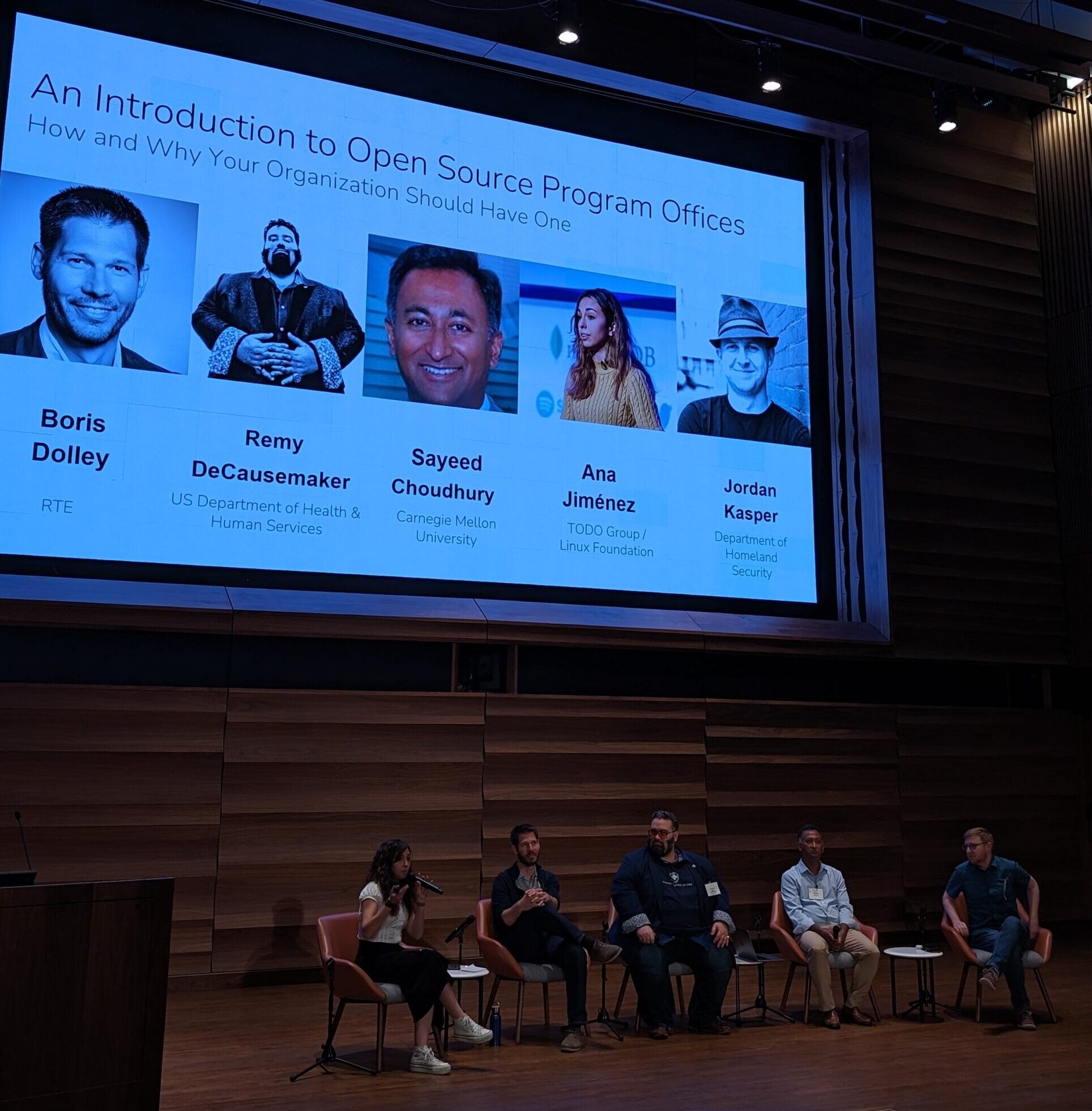Open Sustainability Policy Summit Recap and Video: Intro to Open Source Program Offices
In a panel session at the Open Sustainability Policy Summit, experts from diverse sectors converged to discuss the pivotal role of Open Source Program Offices (OSPOs) and why every organization should consider establishing one (video follows below). Moderated by Ana Jimenez-Santamaria of the TODO Group, the session featured insights from leaders shaping OSPO initiatives across academia, government, and industry.
1. The Ubiquity and Value of Open Source
The session commenced with a reflection on the pervasive influence of open source software in modern technology ecosystems. Highlighting its presence in both proprietary and non-proprietary software, panelists underscored the critical role of open source components in driving innovation and sustainability across various domains.
2. Defining the OSPO’s Role: Bridge Builders
Panelists unanimously agreed that OSPOs serve as vital intermediaries between organizations and the broader open source community. They emphasized the OSPO’s function in facilitating collaboration, managing contributions, and ensuring compliance with licensing and security standards. This dual role of fostering internal open source adoption while engaging with external communities was a recurring theme.
3. Challenges and Opportunities in Government and Large Organizations
Remy DeCausemaker from the US Department of Health & Human Services provided valuable insights into the unique challenges faced by OSPOs in governmental settings. Issues such as regulatory compliance, supply chain security, and policy alignment were discussed in detail. The panelists highlighted OSPOs’ role in navigating these complexities to harness the benefits of open source while mitigating associated risks.
4. Inner Source: Encouraging Collaboration Within Organizations
Jordan Kasper, representing the Department of Homeland Security, shared experiences on adopting Inner Source practices. This approach adapts open source methodologies for internal use, promoting transparency, collaboration, and knowledge sharing within organizational boundaries. The panelists emphasized how Inner Source initiatives can foster innovation and agility while maintaining organizational standards and security.
5. Community Engagement and Education
Sayeed Choudhury of Carnegie Mellon Libraries emphasized the educational role of OSPOs, particularly in academic institutions. OSPOs play a crucial role in educating stakeholders about the benefits of open source, managing community relationships, and integrating open source practices into research and education initiatives. This outreach not only enhances institutional reputation but also promotes a culture of openness and collaboration.
Conclusion
The panel discussion concluded with a call to action for organizations to recognize the strategic importance of OSPOs in today’s digital landscape. Whether in academia, government, or industry, establishing an OSPO can foster innovation, improve security, and enhance collaboration both internally and within the broader open source community. As organizations navigate the complexities of digital transformation and sustainability, OSPOs emerge as indispensable facilitators of open source adoption and stewardship.
About the Panelists:
- Anna Jimenez-Santamaria, Moderator and OSPO Advocate, TODO Group
- Sayeed Choudhury, Associate Dean for Digital Infrastructure, Carnegie Mellon Libraries
- Remy DeCausemaker, Open Source Lead, Centers for Medicare & Medicaid Services, US Department of Health & Human Services
- Boris Dolley, Head of Open Source Program Office and Sustainable IT, RTE
- Jordan Kasper, Senior Advisor for Technology & Delivery, Department of Homeland Security
